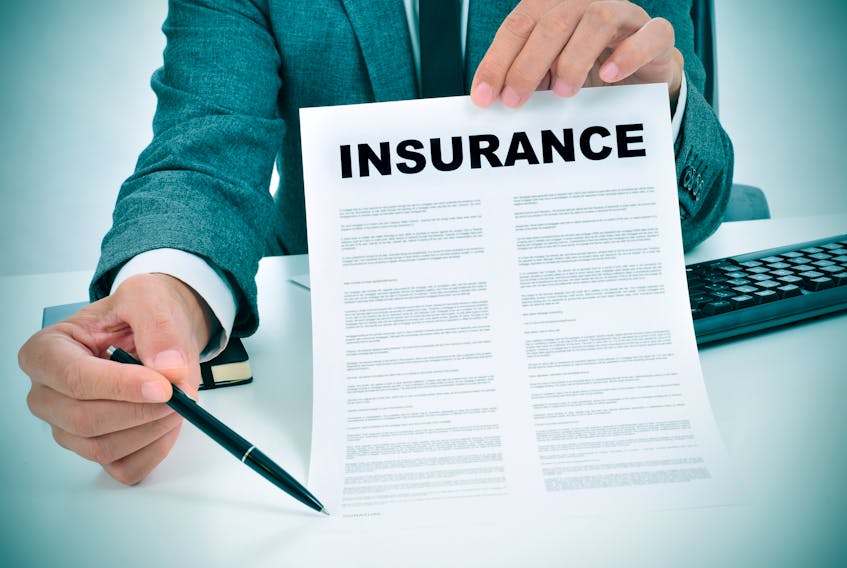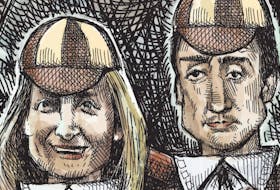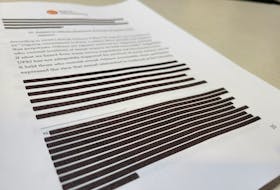Apparently, insurance companies in Newfoundland are losing money on auto insurance.
This surely surprises anyone who receives an arbitrary increase in auto insurance rates once or twice a year, without even a thank you card.
Motorists must occasionally wonder why insurance companies are allowed to hoist rates without even putting on a signal light.
A few years ago, the mystery spurred me to write a letter to my insurance company to ask why my auto insurance rate had gone up again.
They sent back a single-sentence answer, and I swear on the life of my computer that I’m not making this up: “Your rate has gone up because insurance premiums have increased.”
Such circular logic might be confusing, but its bafflegabulous misdirection is minor compared to the manipulations emanating from the Public Utilities Board’s ongoing public hearings about auto insurance.
Insurance companies in Newfoundland are losing money, several industry representatives have stated.
They can say this because they are the only ones who have the full facts and figures.
More from this columnist:
Brian Jones: In defence of Newfoundland weather
Brian Jones: Liberals dole out more corporate welfare
It brings to mind numerable adages about twisting statistics.
Some lawyers at the hearings have defended ratepayers by disputing the insurance companies’ claims of losses.
Insurance companies vs. lawyers. It’s like a B-grade horror extravaganza featuring Godzilla vs. King Kong.
Seemingly lost amid the jousting about why insurance rates in Newfoundland are so high are basic questions policyholders deserve answers to.
Chief among them: vehicle owners are required by law to have auto insurance, so why isn’t there an accompanying law that places limits on rates?
Auto insurance is the only product in the free market that governments require consumers to buy. House insurance is optional. Electric heating is optional. You can use oil, firewood or solar instead. Vegetables are optional. You can go your entire life without buying or eating vegetables, and the government won’t pass a law to force you to do otherwise.
Winter vacations down south? Never take one. The government won’t care.
But you must buy auto insurance. The other half of the equation would logically entail a legal limit on how much companies can charge people for auto insurance.
Of course, there is no such law. As has been said, the auto insurance industry is akin to a licence to print money.
Except when it’s not — when insurance companies lose money, as they allegedly do in Newfoundland.
And if you believe that, you’ll want to keep an eye on the headlines to see whether Dwight and Donald enjoyed their date at “Come From Away.”
Every year in this province, vehicle owners collectively pay millions of dollars for auto insurance. The PUB’s hearings have provided the astounding revelation that nobody knows exactly where all this money goes.
The insurance companies say a lot of it goes to accident victims and their lawyers.
Advocates for policyholders say a lot of it goes to company profits.
This raises another basic question the hearings should, but won’t, answer for the public: vehicle owners must, by law, purchase auto insurance, so how can it be that the government does not keep track of every dollar charged and every dollar paid out?
Instead, the system seems to be: you have to buy it, but after that, you’re on your own.
The superintendent of insurance issues annual reports. They are online at http://www.servicenl.gov.nl.ca/publications/index.html#insurance. The most recent report is for 2016. “Report” is a misnomer. They are merely collections of numerical tables, with no explanation or summary, nor an iota of analysis. Neophyte observers will have to turn to Google to learn what an “earned premium” is.
Nevertheless, the 2016 report reveals auto insurance premiums over claims for various companies: $8 million for one, $10 million for another, $25 million for another and so on.
Losses indeed.
Brian Jones is a desk editor at The Telegram. He can be reached at [email protected].









